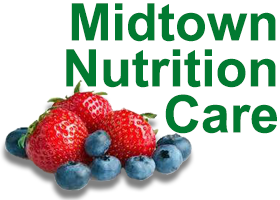SOY
Soy is short for soybean. Soybeans and soy products are an excellent source of protein. Soybeans can be a replacement for animal protein in meals. Like other beans they are also an excellent source of fiber: 1 cup of edamame has 8 grams of fiber. Soybeans are also low in saturated fat which make them heart healthy.
Soybeans contain a compound in them called isoflavones. Isoflavones weakly mimic the effect of estrogen. This effect may reduce the risk of osteoporosis and heart disease. In animal studies, on the other hand, high intake of isoflavones showed an increase risk of certain types of breast cancer. However, this effect has not been seen in studies with humans. In fact, in studies with humans, soy from foods appears either to have no effect, or it may even lower the risk of breast cancer.
It’s best to eat soy from whole foods such as edamame, soy nuts, tofu, tempeh and soy milk. The concern with processed versions of soy like soy protein isolate, soy protein concentrate, or textured vegetable protein, which are found in shakes, bars, supplements, meat substitutes, and many processed foods, is the process that goes into making these foods. A chemical solvent called hexane is used to extract the oil from the soybeans. Chronic exposure to hexane in factory workers has been linked to neurological conditions, but it is not clear if only eating food with trace amounts of hexane causes any negative health effects. If you want to include some processed soy products in your diet, it’s best to buy organic versions because hexane is not allowed in organic food processing.
In conclusion, a moderate consumption of soy has been shown to have positive health effects. A moderate consumption defined by the American Institute for Cancer Research is 1 to 2 servings daily of whole soy foods. A serving is:
–1/3 cup (about 3 oz.) of tofu
–1 cup of soy milk
–1/2 cup of edamame
–1/4 cup (1 oz.) of soy nuts
